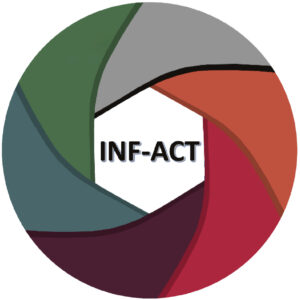One Health Basic and Translational Research Actions addressing Unmet Needs on Emerging Infectious Diseases

According to WHO, emerging infectious diseases are classified as “diseases caused by newly-identified or previously unknown pathogens causing public health concerns at the local as well as at the international level”. The recent SARS-CoV-2 pandemic is a glaring example of how the emergence of a new infectious agent in our globalized society can have devastating effects, also in countries at the forefront in technology, healthcare and monitoring. At the same time, relevant lessons were learned regarding the ability to detect and isolate the pathogen of concern, sequence its genome, monitor the emergence of variants, rapidly define candidate prophylactic and therapeutic strategies and quantify risk and prioritize public health interventions (both pharmaceutical and nonpharmaceutical) with subsequent large-scale production and distribution of diagnostic “in house assays” and commercial kits, PPE and drugs. Also defining and monitoring humoral and T-cellular immune response to both natural infection and vaccination in healthy subjects and different cohorts of patients proved to be of paramount importance for patients management and policy making. This experience has highlighted the response potential and capacity of modern multi-disciplinary scientific research, that is, in turn, strongly dependent on the acquisition of ever broader and in-depth knowledge on host-pathogen interaction mechanisms involving both the microbial agent, the vector and/or the animal reservoir, and the human host in an operational “one health” approach within their reciprocal relationships with the reference ecosystems. This is particularly relevant considering that most emerging infectious diseases are zoonotic, occurring at the human-animal-environmental interface, and linked to inter-species “spill-over” events. Such change of paradigm from a man-centered approach to a comprehensive vision constitutes the main guideline along which the research efforts should be directed to increase preparedness, readiness and response capacity of health systems, and ultimately the resilience and resistance of countries, against epidemic and pandemic events.
The INF-ACT research program addresses pressing unmet needs of human emerging infectious diseases in both fundamental as well as in translational aspects, taking into consideration human health in a wider context including domestic and wild animals as potential disease reservoirs and environmental factors enhancing the possibility for spillover (One Health approach). The project is focused on three pillars addressing different research themes:
- Emerging and re-emerging viral diseases (with a focus on respiratory viruses and zoonotic viruses);
- Arthropod vectors and vector-borne pathogens (with a focus on VBDs most at risk of expand or emerge in Italy, such as arboviruses);
- Diseases sustained by bacteria and fungi resistant to multiple antibiotics (AMR, with a focus on the molecular mechanisms of MDR).
In addition, two transversal pillars will bi-directionally interact with the basic and translational activities of the three major pillars, in order to blend the high-profile skills recruited in the project:
- Integrated one health epidemiology (man, animal and man-animal), monitoring and mathematical models;
- Development of new therapeutic treatment strategies (identification of molecular targets, generation of small molecule libraries for drug discovery, testing of lead compounds and their optimization).
| Acronimo |
|---|
| INF-ACT |
| Bando / Avviso |
| Avviso n. 341 del 15-03-2022 |
| Ente finanziatore |
| Unione europea –NextGenerationEU |
| Coordinatore scientifico |
| Partner |
| Data inizio |
| 01/11/2022 |
| Data fine |
| 31/10/2025 |



